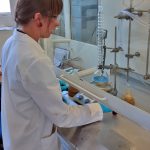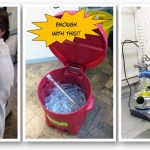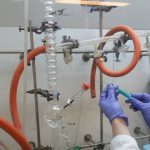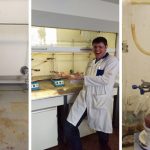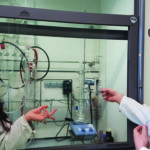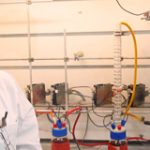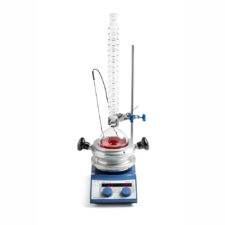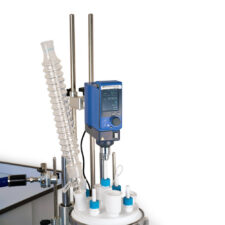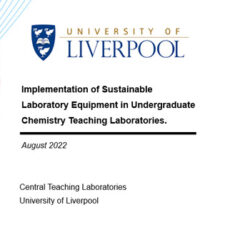
World Water Week 2023 is taking place from 20th – 24th August. It’s an annual event organized by the Stockholm International Water Institute (SIWI) that brings together experts, policymakers, researchers, practitioners, and stakeholders from around the world to discuss and address global water-related challenges. While the event primarily focuses on various aspects of water management, policy, and sustainability, it holds significant importance for the chemistry community for several reasons:
- Water Quality and Chemistry: Chemistry plays a critical role in understanding and addressing water quality issues. Water quality is influenced by the chemical composition of the water, including the presence of pollutants, nutrients, contaminants, and other chemical substances. Chemists and researchers contribute to discussions on water treatment, pollution prevention, and the development of effective methods to monitor and improve water quality.
- Water Treatment and Purification: Chemists contribute to the development of innovative technologies and processes for water treatment and purification. They work on designing and optimizing chemical processes that remove contaminants and pathogens from water sources, making it safe for consumption, industrial use, and ecosystem health.
- Sustainable Water Management: Sustainable water management involves understanding the interactions between water resources and the environment. The chemistry community plays a crucial role in assessing the impact of various human activities on water resources and ecosystems, such as industrial discharges, agricultural runoff, and urban pollution. By studying these interactions, chemists can help develop strategies for sustainable water use and protection.
- Innovation in Water Solutions: World Water Week provides a platform for showcasing innovative solutions related to water challenges. Chemists often present new technologies, materials, and approaches that can have a positive impact on water availability, quality, and distribution. This event facilitates the exchange of ideas and collaboration between chemists and professionals from other disciplines to find holistic solutions.
- Policy and Advocacy: The chemistry community can contribute scientific expertise to inform water-related policies and regulations. Discussions at World Water Week can influence policymakers by presenting evidence-based insights into the chemical aspects of water management, helping to shape effective regulations and guidelines.
- Collaboration and Networking: World Water Week brings together a diverse group of experts and stakeholders, providing chemists with opportunities to collaborate with professionals from other fields, such as hydrology, biology, engineering, and social sciences. This interdisciplinary collaboration is essential for addressing complex water challenges comprehensively.
- Education and Awareness: World Water Week helps raise awareness about the importance of water resources and the need for sustainable management. Chemists can contribute by explaining the chemical processes involved in water quality, treatment, and pollution, helping to educate the public and policymakers about the underlying science.
World Water Week 2023 (as with all previous years) is crucial to the chemistry community because it offers a platform for discussing, sharing, and advancing knowledge and solutions related to water quality, treatment, sustainability, and policy. Chemists contribute their expertise to tackle global water challenges and work collaboratively to ensure the responsible management of this vital resource.
Sharing knowledge and embracing new ways of working
Honest and straightforward sharing of knowledge and experience is key to this, and is something that we support at Asynt. We are devoted to developing more sustainable tools and practices for the scientific community with apparatus such as the CondenSyn waterless air condenser changing the way that labs all around the world work.
We regularly share feedback from scientists who’ve put this unique air condenser to work in their labs. If you have any reservations about making the change from water cooled apparatus such as a Liebig condenser, I would urge you to review their honest and impartial feedback.
- NewChem Technologies, UK
- Queen’s University Belfast, UK
- University of York, UK
- University of Hull, UK
- Helmholtz Institute, Germany
- University of Glasgow, UK
“We have been trying the CondenSyn 450 mm air condenser on a THF drying still (b.p. 66 °C), equipped with a 1 L main flask and ~250 mL collection head.
The still runs for approximately 8-9 hours per day. Taking the flow rate of a standard water condenser to be ~0.5 L/min, a rough estimate shows a saving of 240-270 L of water per day.
In all this time, we never observed any appreciable loss of solvent, and while we didn’t measure the temperature at each end of the condenser, the higher temperature at the base caused by the condensing solvent didn’t spread beyond the second ‘rung’.
Aside from the water saving benefits, the main advantages of the CondenSyn are:
• Ease of set-up – can be located anywhere in the fume hood, not restricted to being near a tap/sink.
• No water tubing attachments, so no risk of flooding or water leaks into electrical equipment, as well as reduced fume hood ‘clutter’.
• No need to worry about fluctuating water pressure (or loss of water supply), so refluxing reactions can safely be left overnight.
• Range of sizes for different reaction scales and sizes of flask.”Dr Graeme McAllister, Experimental Officer, University of York
<The biggest benefits are> No need to worry about the condenser – water tubing connections > eg. reaction setup is so much neater, without a lot of tubing everywhere. No need to disconnect water tubing and having that spill around. Overall also less clutter in the fume hood without tubing etc.
Above all, avoids all of the fume hood flood issues we had previously and we can now leave reactions refluxing overnight worry-free.PhD Medicinal Chemist, Pharmaceutical Company, USA
“We have received a CondenSyn and have found it to be great, not only in terms of reducing setting up time and clutter but in its performance as well.
We have used it for both refluxing and distillations with a range of solvents and it has stood up to all the challenges.
We found them lightweight and easy to handle. As they don’t require water this benefits the environment as well.
Off the back of this we have ordered some more CondenSyn units.”
Thomas Harman, Development Chemist, Aesica Pharmaceuticals Ltd (UK)
“The use of The CondenSyn air condensers around the lab have been very helpful! Reducing the need for water condensers for reactions under reflux has improved the efficiency of completing the reactions allowing more to be done at once and allowing experiments to be completed away from a water source. The chances of flooding and water leakage has also been eliminated which is particularly important for overnight reactions etc.”
Oliver Cartright, University of East Anglia, UK
If you’d like to carry on reading you can find the full evaluations that these excerpts are taken from, along with many others, on the “Evaluations” tab on our product page here: https://www.asynt.com/product/asynt-condensyn-air-condenser/
You can also see just what the potential water and cash savings for your lab could be!
Continue reading
Further information about World Water Week 2023 click HERE and to find out more about the range of CondenSyn waterless air condensers, visit our info page here: www.asynt.com/condensyn-air-condensers/ or contact us to discuss how it could benefit your chemistry. We look forward to talking with you soon.

